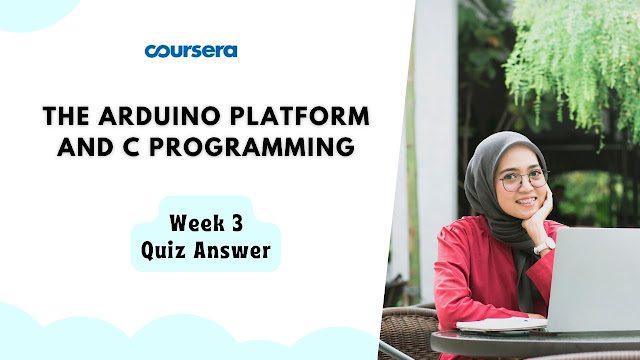The Arduino Platform and C Programming Week 3 Quiz Answer
In this article i am gone to share Coursera Course The Arduino Platform and C Programming Week 3 Quiz Answer
The Arduino Platform and C Programming Week 3 Quiz Answer
Also visit this link: The Arduino Platform and C Programming Week 2 Quiz Answer
Module 3 Quiz Answer
Question 1) What is the function of the linking process after compilation?
- It writes the executable into the memory of the Arduino
- It converts the format of the executable file into .hex format
- It merges the libraries with the application code into a single executable
- All of the above
Question 2) What is the role of avrdude?
- It writes the executable into the memory of the Arduino
- It converts the format of the executable file into .hex format
- It merges the libraries with the application code into a single executable
- None of the above
Question 3) Why are classes (in C++) useful?
- Their use improves code performance
- They reduce the memory requirements on the processor
- They improve the organization and understandability of the code
- They allow the programmer to evaluate the performance of the system
Question 4) What is one way that a sketch can invoke a function contained inside a class?
- The name of the function can be concatenated with the name of the class, with a comma in between.
- The name of the class can be concatenated with the name of the function, with no symbol in between.
- The name of the function can be concatenated with the name of the class, with a colon in between.
- The name of the class can be concatenated with the name of the function, with a period in between.
Question 5) Which of the following statements is true?
- The setup() function is executed after each iteration of loop().
- The loop() function must contain either a while loop or a for loop.
- The setup() function is executed once and the loop() function is executed a fixed number of times.
- The setup() function is executed once and the loop() function is executed iteratively, as long as the Arduino is powered on.
Question 6) True or False: An analog pin can accept analog inputs and drive analog outputs.
- True
- False
Question 7) If a sketch running on an Arduino UNO executes the following statements, what voltage would be expected on pin 1 afterwards?
pinMode(1, OUTPUT);
digitalWrite(1, HIGH);
- 0
- 3.3
- 5
- 12
Question 8) True or False: The delay() function causes program execution to pause for a number of milliseconds.
- True
- False

